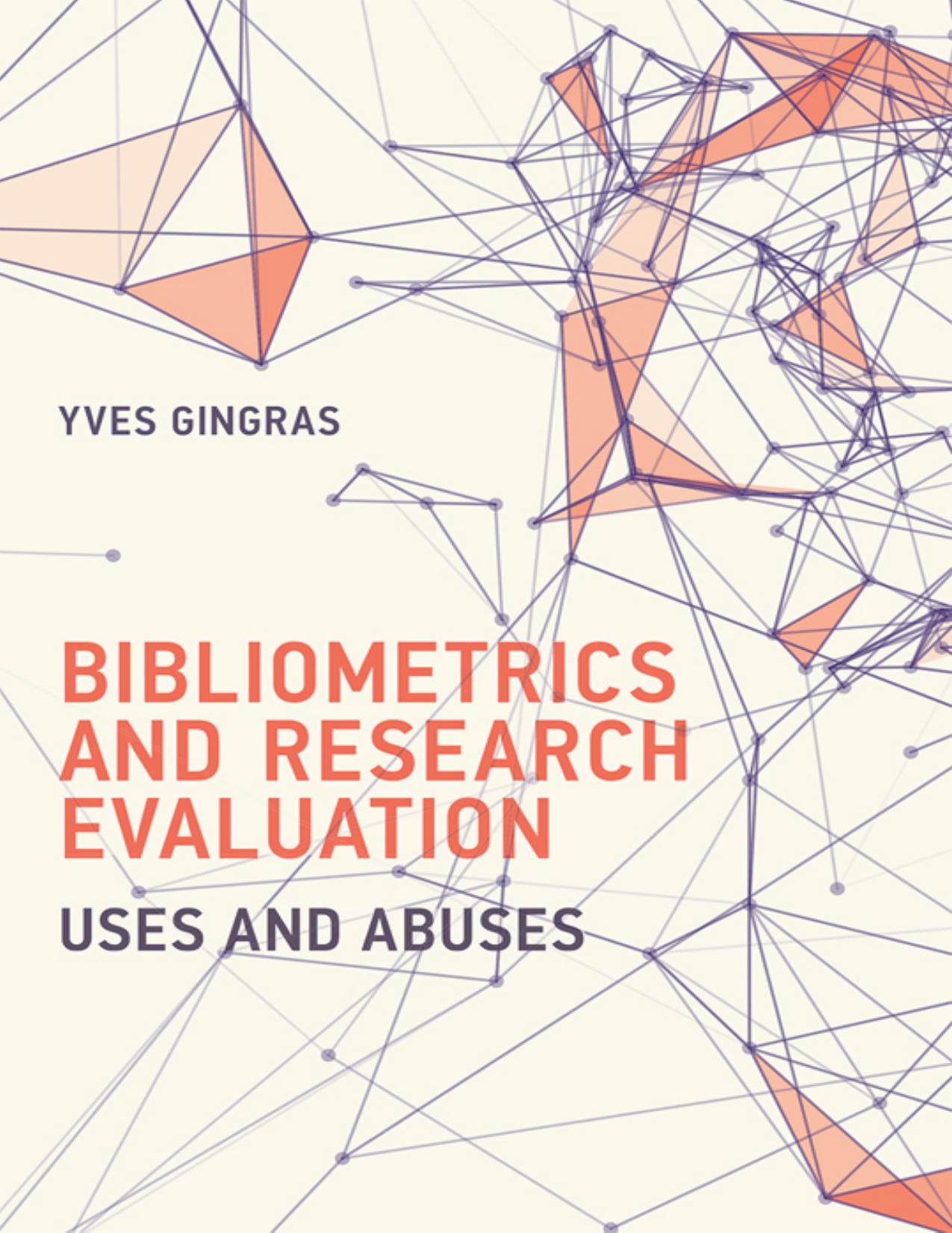Bibliometrics and Research Evaluation: Uses and Abuses (History and Foundations of Information Science) by Yves Gingras

Author:Yves Gingras [Gingras, Yves]
Language: eng
Format: mobi, pdf
Publisher: The MIT Press
Published: 2016-09-29T16:00:00+00:00
University Rankings
The ideology of rationalization, efficiency, and excellence, promoted since the 1980s by the so-called New Public Management, focused on the evaluation of everything using indicators and benchmarks as “objective” measures of efficiency and return on investment. In higher education and research, this ideology took the form of simple rankings of the so-called best colleges and universities in a country or area based on a series of supposedly commonsense indicators like “employer reputation,” “academic reputation,” and the presence of “international faculty and students,” to name some of those used in academic rankings produced by magazines like the Financial Times for business schools and U.S. News & World Report for universities.50 Rankings of research universities based on reputational measures and indicators of quality followed suit with the publication in 2003 of the so-called Shanghai Ranking of the top 1,000 universities of the world. Published each year, this ranking now competes with the QS World University Ranking and the Times Higher Education World University Ranking, also published annually.
Confronted with the many competing rankings, Joël Bourdin, a French senator, observed that each of them seems to have the unfortunate tendency of being biased in favor of different institutions: “The Shanghai Ranking favors American universities, while the Leiden ranking seems to have a certain bias towards Dutch universities.”51 He could have added to this list the École des Mines ranking, which sees French grandes écoles in a very flattering light, and yet they are marginal in the Shanghai ranking, all the while using as an indicator “the number of alumni holding a post of chief executive officer or equivalent in one of the 500 leading international companies.” Given the intimate relations between French grandes écoles and France’s large companies (many of them formerly state-owned), the chosen indicator inherently favors these institutions.52
Even before these rankings appeared on the market, the most systematic evaluation system for universities was the Research Assessment Exercise (RAE), established in the mid-1980s in the United Kingdom under Margaret Thatcher. The gigantic task of this system was to assess the research activities of all academic departments, in all disciplines, in all UK universities every four or five years, and judge the quality of research in the various departments (and therefore their publications in particular), with a peer-review committee producing a final grade. After the first evaluation of 1986, which assigned departments a score between 1 (national recognition) and 4 (world leader), the ranking has become even more differentiated to include intermediate levels (3a and 3b, for example) and higher levels (5 and 5*). The incentive to take that evaluation seriously was that a portion of government budgets allocated to universities was attached to these scores, with the highest-rated institutions receiving larger grants.
The bureaucratic weight of this evaluation system is enormous to this day: fifteen sectors, divided into sixty-seven research areas. It mobilized approximately 1,500 evaluators.53 The last assessment under this system was carried out in 2008, just to be redesigned and renamed the Research Excellence Framework (REF)—note the presence of the catchword excellence—and the results of this new system came out in 2014.
Download
Bibliometrics and Research Evaluation: Uses and Abuses (History and Foundations of Information Science) by Yves Gingras.pdf
This site does not store any files on its server. We only index and link to content provided by other sites. Please contact the content providers to delete copyright contents if any and email us, we'll remove relevant links or contents immediately.
Cecilia; Or, Memoirs of an Heiress — Volume 1 by Fanny Burney(32527)
Cecilia; Or, Memoirs of an Heiress — Volume 2 by Fanny Burney(31928)
Cecilia; Or, Memoirs of an Heiress — Volume 3 by Fanny Burney(31916)
The Great Music City by Andrea Baker(31902)
We're Going to Need More Wine by Gabrielle Union(19020)
All the Missing Girls by Megan Miranda(15892)
Pimp by Iceberg Slim(14464)
Bombshells: Glamour Girls of a Lifetime by Sullivan Steve(14039)
For the Love of Europe by Rick Steves(13823)
Talking to Strangers by Malcolm Gladwell(13332)
Norse Mythology by Gaiman Neil(13317)
Fifty Shades Freed by E L James(13216)
Mindhunter: Inside the FBI's Elite Serial Crime Unit by John E. Douglas & Mark Olshaker(9298)
Crazy Rich Asians by Kevin Kwan(9262)
The Lost Art of Listening by Michael P. Nichols(7480)
Enlightenment Now: The Case for Reason, Science, Humanism, and Progress by Steven Pinker(7288)
The Four Agreements by Don Miguel Ruiz(6729)
Bad Blood by John Carreyrou(6601)
Weapons of Math Destruction by Cathy O'Neil(6249)
